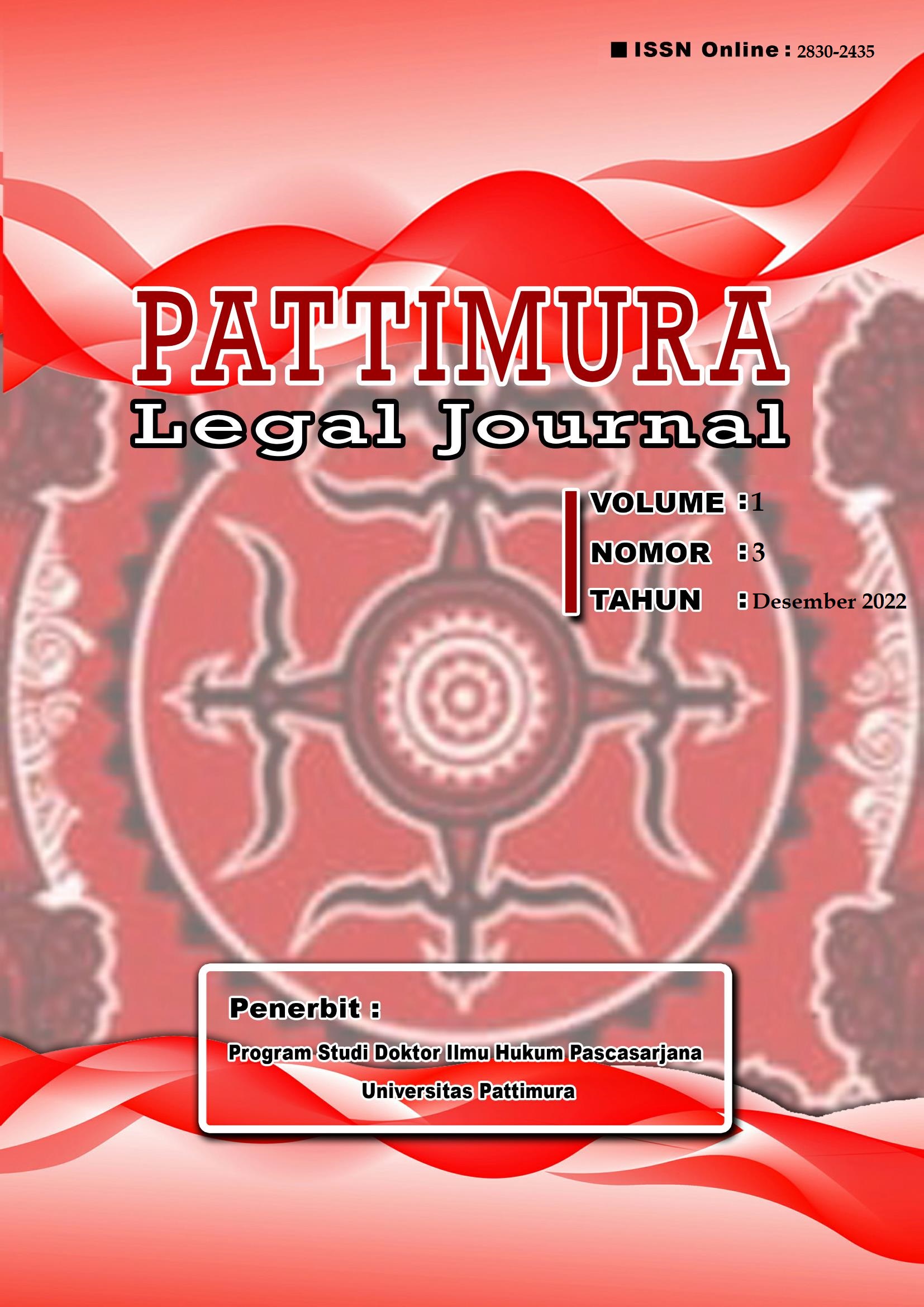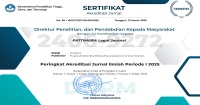Dualisme Makna Akta Pengakuan Hutang
Abstract
Introduction: Deed of debt recognition as an authentic deed can be made in two forms, namely as a debt agreement or equivalent to a credit agreement and as an assessor agreement of a credit agreement deed that is grosse deed. Both types of debt acknowledgment deeds are still used in public life, the benefits and functions of each deed are different, because the position is different, the impact of the deed is also different.
Purposes of the Research: The purpose of this research is to see the differences in the actualization of the deed of recognition of debt in practice and to examine the position of the deed of debt recognition and the contribution of each deed in the legal relationship of the parties.
Methods of the Research: This research was conducted in a normative juridical manner, namely by examining the existing secondary data in the field of law as library data which is focused on examining the application of rules or norms in positive law so that the data used by the author is secondary data.
Results Originality of the Research: The dualism of interpreting the meaning of debt recognition basically has the same hope, namely the existence of a legal relationship in debts and receivables, the position deed of debt recognition as an authentic deed has a formal function and the function of evidence, the strength of the debt recognition deed provides perfect evidentiary power. The position of debt recognition as a grosse deed should not be merely a scrap of paper because it requires a follow-up to the imposition of collateral through a separate deed of guarantee, then the debt recognition as an assessor agreement becomes an intermediary deed which seems futile. The dualism of the meaning of this deed of recognition of debt would not occur again and provide a harmonious understanding. if you really want to emphasize it, you should use the term 'debt agreement or credit agreement' which is domiciled as the main agreement, without a grosse deed followed by the binding of special guarantees, both individual and material guarantees for the interests and legal protection of the parties.
Downloads
References
Buku
Fuady, Munir. Hukum Perkreditan Kontomporer. Bandung: Citra Aditya Bakti, 1996.
Lubis, Irwansyah, Anhar Syahnel, and Muhammad Zuhdi Lubis. Profesi Notaris Dan Pejabat Pembuat Akta Tanah: (Panduan Praktis Dan Mudah Taat Hukum). Jakarta: Mitra Wacana Media, 2018.
Nico. Tanggung Jawab Notaris Selaku Pejabat Umum. Yogyakarta: Center For Documentation And Studies Of Business Law, 2003.
Panggabean, H. P. Penyalahgunaan Keadaan (Misbruik Van Omstandigheden) Sebagai Alas An (Baru) Untuk Pembatalan Perjanjian (Berbagai Perkembangan Hukum Di Belanda Dan Indonesia). Yogyakarta: Liberty, 2010.
Situmorang, Victor M, and Cormentyna Sitanggang. Grosse Akta Dalam Pembuktian Dan Eksekusi. Jakarta: Rineka Cipta, 1993.
Soekanto, Soerjono, and Sri Mamudji. Penelitian Hukum Normatif, Suatu Tinjauan Singkat. Jakarta : Raja Grafindo Persada. Jakarta: Rajawali Pers, 2015.
Soemitro, Ronny Hanitijo. Metodologi Penelitian Hukum Dan Jurimetri. Jakarta: Ghalia Indonesia, 1990.
Online/World Wide Web, Disertasi/Tesis/Skripsi, Dan Lain-Lain
Sinaga, Roulinta Yesvery. “Pertanggungjawaban Notaris Atas Akta Kuasa Yang Dibuat Sebagai Dasar Pembuatan Akta Pengakuan Hutang (Studi Putusan Nomor 529/Pdt.G/2017/PN MDN)”.” Tesis: Universitas Gadjah Mada, 2019.
Copyright (c) 2022 Roulinta Yesvery Sinaga (Author)

This work is licensed under a Creative Commons Attribution-NonCommercial 4.0 International License.
Authors who publish their manuscripts in this Journal agree to the following conditions:
- The copyright in each article belongs to the author, as well as the right to patent.
- Authors are able to enter into separate, additional contractual arrangements for the non-exclusive distribution of the journal's published version of the work (e.g., post it to an institutional repository or publish it in a book), with an acknowledgment of its initial publication in this journal.
- Authors are permitted and encouraged to post their work online (e.g., in institutional repositories or on their website) prior to and during the submission process, as it can lead to productive exchanges, as well as earlier and greater citation of published work.
- Authors have the right to self-archiving of the article (Author Self-Archiving Policy)






















